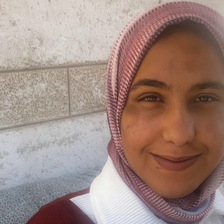The Electronic Intifada 1 November 2024

An emergency worker seaches for victims in the rubble of a building in Khan Younis bombed on 25 October. According to local authorities, 1,760 people are missing-presumed-incinerated in Israeli attacks over the past year.
APA imagesMahmoud Ahmad Salah,12, survived an airstrike on 7 December that wiped out his entire family in western Khan Younis.
Dozens of relatives were killed in the strike, but when identifying the bodies, Mahmoud noticed that his mother and brother were not among the recovered corpses.
“My mother was in the kitchen when the bombing happened,” Mahmoud recalled with a trembling voice in an interview in October near the ruins of his family home.
His testimony adds to the growing evidence that some victims are completely vaporized in some Israeli airstrikes.
Reports from civil defense workers and hospitals indicate that 1,760 bodies have been incinerated by the intense heat generated by some Israeli bombs.
Civil defense officer Tamer Zourob told The Electronic Intifada that the scenes he encounters are “beyond description.”
“Even the concrete melts and turns to ashes because of these bombs, so imagine what they do to a human body,” he said.
Many people are reported missing after airstrikes, he said, but extensive search efforts often fail to recover any remains.
“It’s heartbreaking when families beg us to find their loved ones, even a small piece of them. But sometimes, we find nothing,” he said.
Waiting for closure
Hidaya Sadiq has been unable to recover the body of her son Akram, 27, who was evidently killed on 22 October 2023 in an Israeli airstrike on a café in central Khan Younis.
Akram was sitting with friends when the missile hit the cafe. But despite witnesses confirming his presence at the location during the attack, no body was found.
Hidaya continues to live with the anguish of uncertainty over the fate of her son.
“How can a human being made of flesh and blood just vanish like that?” she asked during an interview earlier in October. “ I took care of him, stayed up with him at night, and now he has evaporated in a moment. What did he do to deserve such a brutal death?”
The pain of not being able to see or even bury her son leaves her in a constant state of grief with unanswered questions turning over in her mind.
She is far from alone.
Muhammad Rayan, head of the emergency department at al-Aqsa Martyrs Hospital in Deir al-Balah, confirmed the occurrence of “body vaporization” based on cases he has investigated and from the experience of his own relatives.
In some instances, he said, the intense heat from certain bombs left only fragments of bodies or nothing at all, making it nearly impossible to identify any human remains. As a result, some corpses are recovered from the rubble while others vanish without trace.
“The house of my aunt was hit, and to this day, we have not found the bodies of her daughter and grandson, not even any parts of them. It’s as if they simply vanished,” Rayan said in a phone interview with The Electronic Intifada.
Accountability
The Euro-Med Human Rights Monitor has called for an international investigation into the types of weapons used by Israel, including the possibility that Israel is using bombs that generate such extreme heat that victims are simply incinerated.
According to the rights group, many cases similar to those of the family members of Hidaya and Mahmoud have been documented, suggesting the possible use of thermobaric or “vacuum” bombs, used to destroy tunnels and underground shelters.
The group’s findings have been supported by local health authorities and Gaza’s civil defense, who are documenting cases in to support any legal claims that may arise.
The horror of losing loved ones without trace can add an extra layer of agony for families already suffering from loss, but unable to properly mourn.
Iman Abu Akar, a mental health professional affiliated with the Ma’an Development Center in Gaza, said that the absence of a body leads to a state of “ambiguous loss,” making closure almost impossible and prolonging the grieving process.
Even a small part of the deceased can help families find some peace and start the healing process, she told The Electronic Intifada.
For Hidaya and other grieving mothers, the absence of a body means the absence of closure, leaving them with perpetual pain and unanswered questions.
“I want any part of him, anything, even if it’s a tiny piece, to be able to believe that he is truly gone,” she said.
Mahmoud now lives alone, cared for by the adults around him. He misses his mother, he said.
“I wish I could have seen her one last time to say goodbye. If she had a grave, I would visit her every time I missed her.”
Fedaa al-Qedra is a journalist in Gaza.





